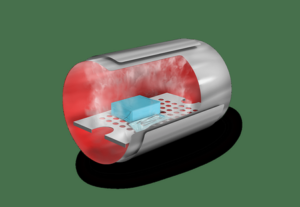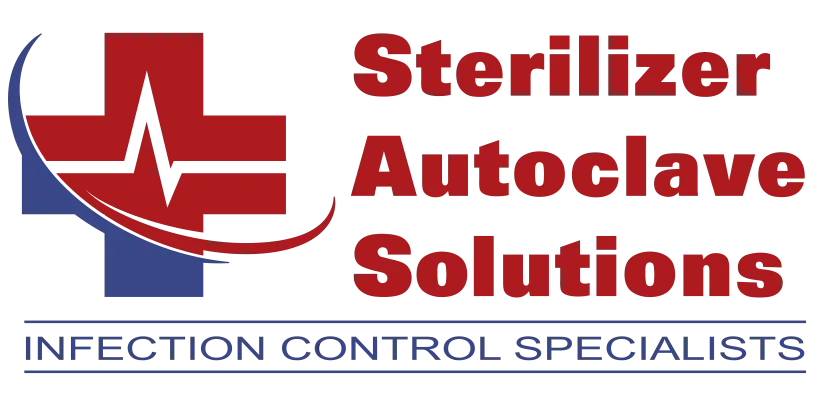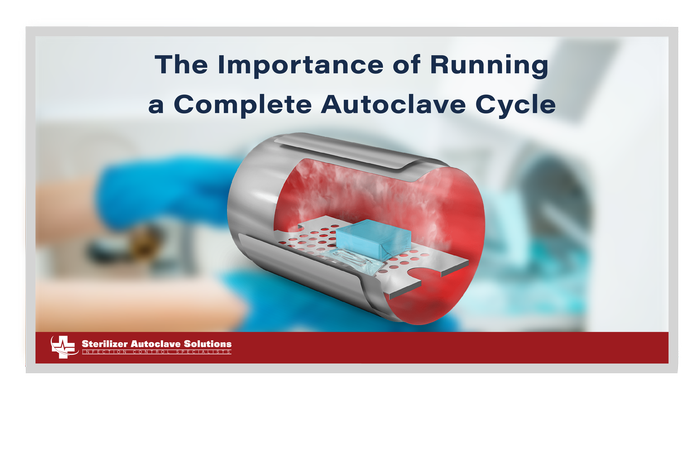The Importance of Running a Full Autoclave Cycle
When it comes to owning an autoclave, every step in the process is crucial. It’s vital to ensure a number of factors are met for efficient and safe operation. From the initial setup and installation to regular maintenance and proper usage. Each aspect contributes to the overall performance and longevity of the autoclave. By following best practices in every stage of ownership, you can ensure the effectiveness of sterilization processes, the safety of personnel, compliance with regulations, and the longevity of the equipment. But there’s one step that some people fail to recognize as being important. And like anything, improper operation of the autoclave can create a world of headaches in the future. It sounds like common sense, but one problem people can have, is hot cycling. The process of jumping from cycle to cycle with no cooldown.
In this article, we want to go into detail on what hot cycling is, and how to prevent it to save you from future problems.
What is Hot Cycling?
Hot Cycling. The process of trying to jump into another cycle right after one just finished. Think of it as “cheating” a cycle. You have your unit standing by in dry mode fresh off of a sterilization cycle. But you take everything out before the dry time is up and start a whole new cycle.
This is not safe practice for an autoclave, as some units aren’t built for hot cycling. One of the most common mistakes we see is that someone hot cycled their unit and it leads to issues. But it can also result in an improperly dry load, as you’re not letting them rest after the cycle. So not only do you effect your unit, but you can potentially compromise your loads.
The Effects of Hot Cycling
Firstly, hot cycling can lead to increased wear and tear on the components of the autoclave, like the seals and gaskets. Which are essential for maintaining the proper sealing and pressure during the sterilization process. If you hot cycle the unit, the seal can degrade much quicker than it would if operated normally.
Also, hot cycling may also impact the overall efficiency and reliability of the autoclave. The repeated exposure to extreme temperatures can lead to stress, which can compromise the structural integrity of the unit and increase the chance of malfunctions or breakdowns.
It can even cause delays with all of the excess steam it’s creating trying to pump new water into a chamber that hasn’t cooled down properly. Which can even lead it to push water back into the reservoir.
So before you even think about running a new cycle, ensure that the chamber is cool. Give your autoclave ample time to cool off.
Final Thoughts
When we write articles or make videos about various topics in the infection control and sterilization world, we try to cover everything. Especially because there are some instances where there’s an important topic that isn’t talked about nearly enough. So we make it our mission to inform you on anything and everything we can. For example, hot cycling. One of the most common mistakes we see in autoclave ownership, yet it’s one of the more harmful things you can do to one of these machines.
Hot cycling an autoclave can have detrimental effects on the unit’s components, efficiency, and reliability. And it’s essential to reduce hot cycling to preserve the longevity and performance of autoclaves, ensuring their effectiveness in sterilization processes. All while, in turn, saving you a future of expensive maintenance, safety problems and headaches.
If you want to learn more about the negative aspects of hot cycling, or have any other questions about all things autoclave, give us a call at 704-966-1650 Option 3 for our Free Tech Support line. You can also find our various services on our site using the links below.
As always if you have any questions about this process or anything else please feel free to contact us and take advantage of our “FREE TECH SUPPORT.”
We also offer FREE VIRTUAL TECH SUPPORT to “See and Talk” with a “Real Time Live Technician” for any problems you may be in need of help with.
You can also use our “FREE MAINTENANCE PROGRAM”. Take the guesswork and worrying about what unit is due for maintenance and which maintenance cycle it is time for. We will keep track of all your autoclaves and let you know when it’s time for anything.


